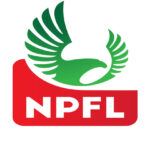The federal government, through the Raw Material Research and Development Council (RMRDC), has begun the process of reducing the rate at which adhesives of different forms are being imported into the country.
The Director-General of the Council, Dr. Ibrahim Hussaini Doko, said in a document obtained by our reporter, that as at June 2018, Nigeria imported adhesives worth US$13,291,000.
Experts believe that the raw materials used for the production of most of the adhesives like peal-seal adhesives were natural rubber and acrylic emulsion which can be produced locally from our rubber plants.
Majority of these are still largely imported but the Council said it has commenced researches on how to substitute them with locally available or produced materials such as starch, resins.
If the efforts are succeeded, many farmers will smile to the bank as there will be more market for their produce.
Daily Trust reports that adhesives are mainly used in the construction industry, most especially, in floor tiles and continuous flooring installations, ceramic tiles installation, countertop lamination, manufacture of prefabricated beams and trusses, carpet and flooring underlaying, installation of prefinished panels, joint cements, drywall lamination and covering installations.
It is also extensively used in the furniture industry for the manufacture of millworks, doors, kitchen cabinets and vanitories, appliance assembly and trim attachment.
According to the Director-General, the demand for adhesives in Nigeria for various uses in the manufacturing sector is quite enormous but regretted that large percentage of the nation’s adhesives need are met through importation, whereas domestic production accounted for only about 3% of the total supply.
‘’It has been estimated that the nation’s demand for various forms of adhesives is about 350,000 metric tonnes per annum. Presently, there are some companies producing adhesives in Nigeria and more than 6000 companies are into importation and distribution. As most adhesives are used in the industrial sector, as capacity utilization in the sector increases, the demand for adhesives will also increase,’’ he noted in the document.
He quoted the report by the Global Industry Analysts International which says at the end of 2017, innovations and the global market of adhesives and sealants were dominated by adhesives with a share of 75% and the remaining accruing to sealants. The fraction of adhesives is forecasted to reach $47 billion in value by the end of 2020.
The increase in global demand, according to Dr. Doko, informed the Council’s incursion into research and development of adhesives locally for the nation’s industrial sector, most especially, the construction, furniture, pharmaceutical and the paper industry.
‘’Our starting point is the paper industry, most especially, adhesives used in the envelope industry. The imported adhesives being used in the industry was reported not to be adhering to the surface of the substrate, leading to low leading to low tack and wettability of the envelope,’’ he said.
He said the manufacturing sub-sector of pulp and paper manufacturing sector of the Manufacturers Association of Nigeria (MAN) have requested the Council to provide technical expertise to solve the challenges by producing a suitable adhesive with right specifications for the industry.
‘’As a result of this, the Council constituted a team of experts which was made of members of staff from the Council, Shestco and the envelope producing subsector of MAN. The objective of the project was to produce various types of adhesives useful in the Nigerian paper industry from readily available raw materials,’’ he said.
He said already the Council had produced clear gum and white gum adhesives and that trial runs done in the industry.
‘’Several formulations were tried by the research team until two successful formulations were developed. The productions have be tested at commercial scale and envelopes produced passed all standard quality tests. The research work has been completed and the Council has commenced the patenting of the project,’’ he informed.
The DG said in order to commercialize the products, the Council had on May 2, organized a forum on the ‘’Development and Utilization of Secondary Raw Materials for the Industries in Nigeria’’ with the theme “Promoting Investment in Local Production of Adhesives in Nigeria”.
The forum had in attendance representatives from the National Office for Technology Acquisition and Promotion (NOTAP), National Building and Road Research Institute (NBRRI), Federal Ministry of Industry, Trade and Investment, (FMITI), Agricultural Research Council of Nigeria (ARCN), National Institute of Pharmaceutical Research and Development (NIPRD), Sheda Science and Technology Complex (SHESTCO), Federal Ministry of Finance (FMF), Development Bank of Nigeria (DBN), Federal Competition and Consumer Protection Commission (FCCPC), Nigeria Export Import Bank (NEXIM), Central Bank of Nigeria (CBN), Nigeria Investment Promotion Council (NIPC), the Organized Private Sector (OPS) represented by Manufacturers Association of Nigeria (MAN) amongst others.
They all applauded the initiative, most especially as it will save the nation a lot of foreign exchange.
He said the Council was planning to carry out research and development on other types of adhesives being used by the Nigerian industries in order to reduce the cost importation of adhesives into the country.

 Join Daily Trust WhatsApp Community For Quick Access To News and Happenings Around You.
Join Daily Trust WhatsApp Community For Quick Access To News and Happenings Around You.


